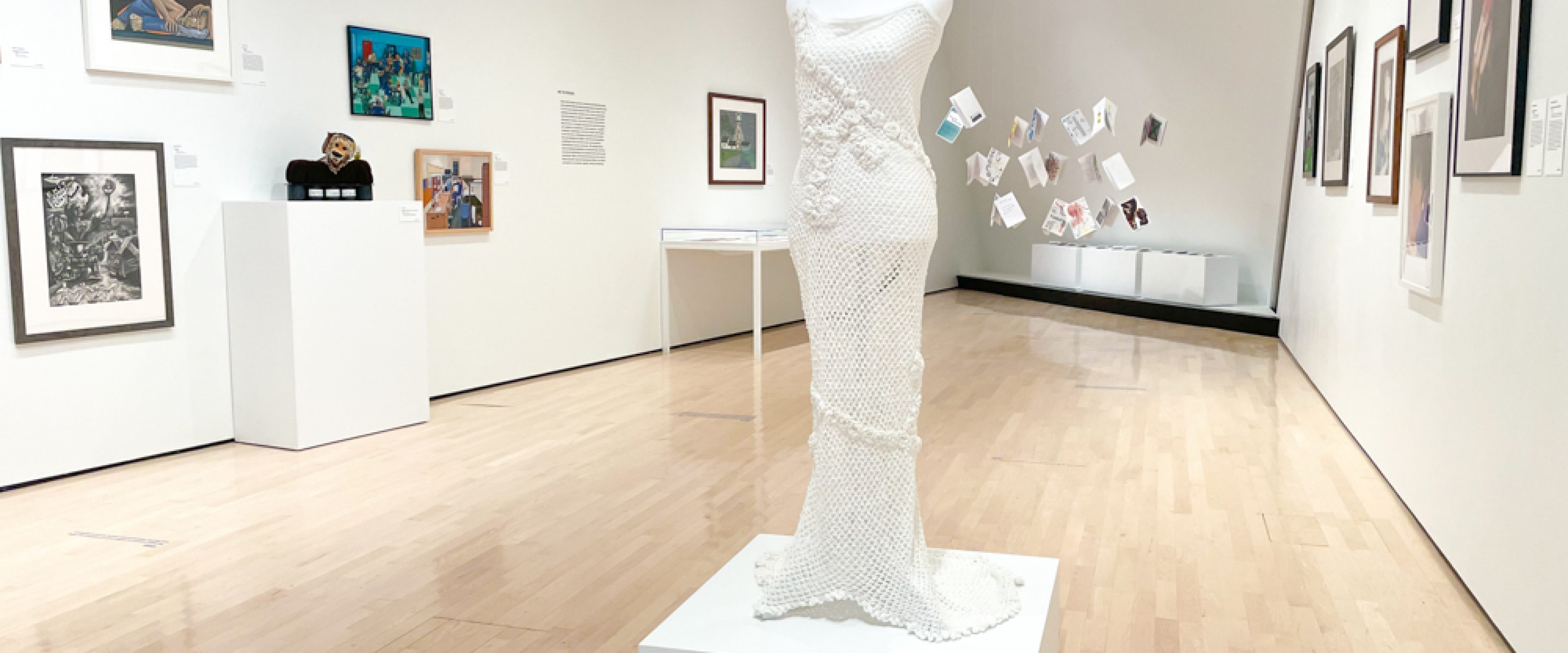Free Your Mind: Art and Incarceration in Michigan is organized by the Eli and Edythe Broad Art Museum at Michigan State University and curated by Steven L. Bridges, Senior Curator and Director of Curatorial Affairs, and Janie Paul, Senior Curator and Cofounder, Annual Exhibitions of Art by Michigan Prisoners, a project of the Prison Creative Arts Project at the University of Michigan. Support for this exhibition is provided by the Eli and Edythe Broad endowed exhibitions fund.
About the Exhibition
Making art can be a transformative experience. It helps us to confront and address some of the most pressing issues of our time. Art has the power to shift the way we see and understand the world around us, and the worlds within us. Free Your Mind: Art and Incarceration in Michigan invites us to consider these qualities of art, while also grappling with the carceral system and the many ways it affects the lives of all of us.
Currently there are approximately 2.2 million people incarcerated in the United States, and in Michigan, there are roughly 33,000 residents currently serving time in the prison system. Working together with a coalition of more than a dozen organizations and Michigan State University units and departments, Free Your Mind explores the inner worlds of incarcerated individuals and the fundamental issues that shape conversations around incarceration today. The exhibition centers on four key topics of inquiry: Michigan’s length of sentencing and overcrowding in prisons; the impact of incarceration on women; youth incarceration; and the dangers of COVID-19.
The exhibition features artists, poets, and storytellers of great achievement. The majority of these artists are either currently or formerly incarcerated. Their works on view invite us to consider the role art-making plays in prisons as a liberating force, and offer unique perspectives on the experience of incarceration. The works also invite us to approach the subject of incarceration with an open mind. Free Your Mind aims to cultivate a greater sense of empathy for those directly impacted by incarceration and an understanding that their growth as individuals is linked to the greater health of the society we all live in, together.
